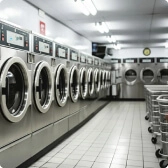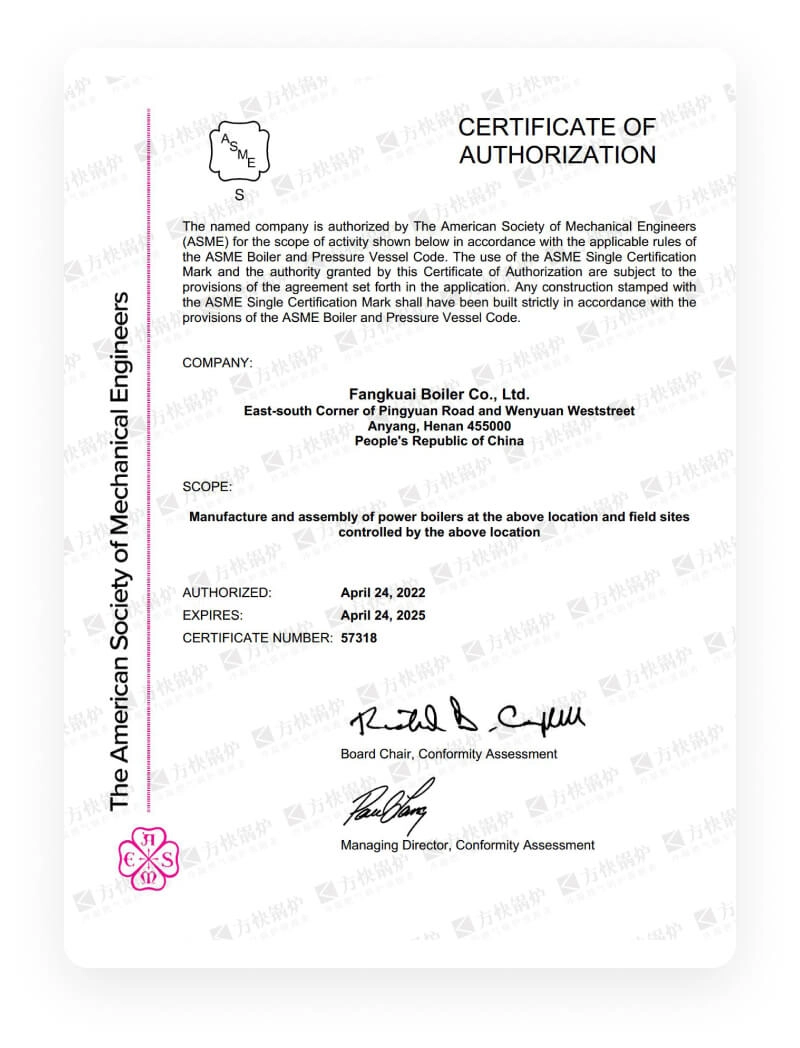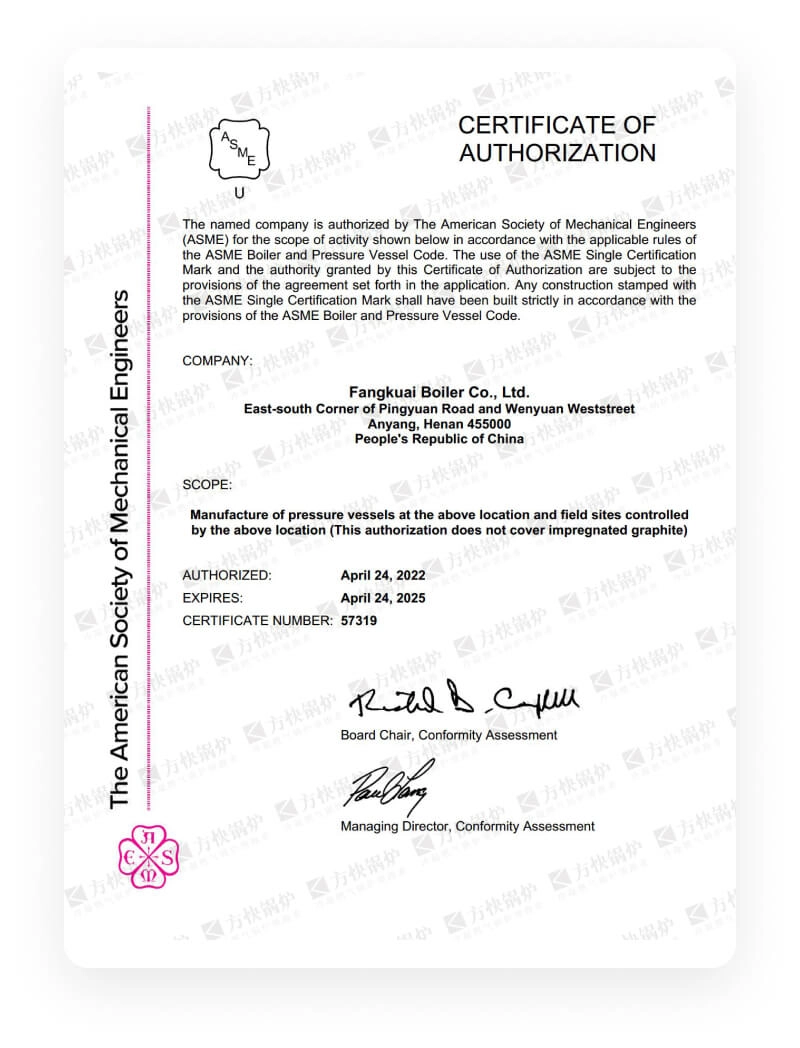How to Choose the Right Boiler for Central Heating: A Complete Guide.
date: 2024-09-03
Page preview:
Introduction
Are you looking to ensure efficient, cost-effective, and environmentally friendly central heating in your home? Choosing the right boiler is key to achieving these goals. In this blog post, we will explore the essential factors to consider when selecting a boiler for central heating. From heating area and energy costs to installation conditions and specific heating requirements, we'll guide you through the decision-making process. Whether you're considering gas boilers, electric boilers, heat pumps, biomass boilers, or coal-fired boilers, we've got you covered. Let's dive in and find the perfect heating solution for your home!

Factors to Consider
When it comes to selecting the perfect boiler for your central heating system, several crucial factors must be taken into account. Let's delve into these considerations to ensure you make an informed decision that meets your heating needs efficiently and effectively.
Heating Area
The size of the area you need to heat plays a significant role in determining the right boiler capacity. Understanding the square footage of the space to be heated is essential for selecting a boiler that can adequately provide warmth throughout the designated area. By accurately assessing the heating area, you can ensure optimal heating performance without compromising on efficiency.
Energy Costs
Considering the cost of energy is paramount when choosing a boiler for central heating. Different types of boilers utilize various fuel sources, each with its associated costs. Evaluating the long-term energy expenses related to different fuel options will help you identify a cost-effective solution that aligns with your budget. By comparing energy costs, you can make an economically sound decision for your heating needs.
Installation Conditions
The installation environment and conditions are crucial factors to consider when selecting a boiler. Factors such as available space, ventilation requirements, and fuel storage considerations must be assessed to ensure the chosen boiler can be safely and efficiently installed. By understanding the installation conditions, you can avoid potential challenges and ensure a seamless integration of the boiler into your central heating system.
Specific Heating Requirements
Every household has unique heating requirements that must be taken into consideration when choosing a boiler. Whether you prioritize quick heat-up times or consistent temperature maintenance, understanding your specific heating needs is essential for selecting the most suitable boiler type. By aligning the boiler specifications with your specific requirements, you can tailor your central heating system to meet your comfort preferences effectively.
- Heating Area
When it comes to selecting the right boiler for your central heating system, one of the key factors to consider is the heating area that needs to be covered. Understanding the size of the area that requires heating is crucial in determining the appropriate boiler capacity. Here are some points to keep in mind when assessing the heating area:
-
Size Matters: Measure the square footage of the space that needs to be heated to determine the heating area accurately.
-
Consider Multiple Spaces: If you have multiple rooms or levels that require heating, factor in each area's size to ensure comprehensive coverage.
-
Consult Professionals: Reach out to heating experts or use online tools to calculate the heating area and determine the appropriate boiler capacity for optimal performance.
Ensuring that you have a clear understanding of the heating area will help you choose a boiler that can efficiently and effectively provide warmth to your home. By taking into account the specific measurements and consulting with professionals, you can select a boiler that meets your heating needs while maximizing energy efficiency and comfort. Let's dive deeper into other essential factors to consider when choosing a boiler for central heating.
- Energy Costs
When it comes to ensuring cost-effective central heating, energy costs play a significant role in the decision-making process. Evaluating the long-term expenses associated with different fuel sources is crucial for budget-conscious homeowners. By considering the cost of energy for gas, electricity, or biomass fuel, you can make an informed choice that aligns with your financial goals.
To navigate the realm of energy costs effectively, it's essential to compare the pricing structures of various fuel sources available in the local market. Conducting thorough research on the current rates and trends can help you project the potential expenses of operating different types of boilers. This foresight allows you to plan for the financial implications of your central heating system and make a sustainable choice for your budget in the long run.
Whether you opt for a gas boiler, electric boiler, heat pump, biomass boiler, or coal-fired boiler, understanding the energy costs associated with each fuel type is paramount. Different boilers have varying operational efficiencies and consumption rates, which directly impact your monthly energy bills. By factoring in energy costs during the selection process, you can strike a balance between affordability and performance, ensuring that your central heating system remains cost-effective over time.
In the realm of central heating, energy costs are a crucial consideration for homeowners seeking to optimize their heating expenses. By analyzing the cost-effectiveness of different fuel sources and comparing the operational efficiencies of various boiler types, you can make a well-informed decision that aligns with your budget and sustainability goals. Remember, smart choices today can lead to long-term savings and environmental benefits for your home.
- Installation Conditions
When it comes to installing a boiler for central heating, it is crucial to consider the available space, ventilation requirements, and fuel storage needs. Different types of boilers have specific installation conditions that must be met for safe and efficient operation. Whether you opt for a gas boiler, electric boiler, heat pump, biomass boiler, or coal-fired boiler, ensuring that the installation environment is suitable is paramount. Proper ventilation is essential to prevent the build-up of harmful gases, while sufficient space is needed to accommodate the boiler and any necessary accessories.
Before installing a boiler, it is important to assess the designated area to ensure it meets the manufacturer's recommendations. This includes checking for adequate clearance around the boiler for maintenance and servicing, as well as verifying that the flooring can support the weight of the unit. Additionally, considering the proximity to fuel sources, such as gas lines or electrical outlets, will help streamline the installation process. By thoroughly evaluating the installation conditions beforehand, you can avoid potential complications and ensure a smooth transition to a new heating system.
Ventilation plays a critical role in the safe operation of a boiler. Proper airflow is necessary to prevent the accumulation of carbon monoxide and other byproducts of combustion, which can pose serious health risks if not properly vented. Depending on the type of boiler chosen, different ventilation requirements may apply. It is important to follow the manufacturer's guidelines and seek professional assistance if unsure about the ventilation needs for your specific boiler model. Protecting your home and family from potential hazards is paramount when it comes to installing a new boiler.
In addition to space and ventilation considerations, the location of the boiler should also allow for easy access for maintenance and servicing. Routine maintenance is essential for ensuring the longevity and efficiency of your central heating system. By choosing a location that allows for convenient access to the boiler components, you can make it easier for technicians to perform inspections, repairs, and cleaning tasks. Prioritizing accessibility during the installation process can save time and effort in the long run, helping to maintain a reliable and effective heating system for years to come.
- Specific Heating Requirements
Understanding Your Heating Needs
Before selecting a boiler for your central heating system, it's essential to identify your specific heating requirements. Do you prioritize quick heat-up times in the morning? Are you looking to maintain a constant temperature throughout the day? Understanding how you use heating in your home will help you choose a boiler that meets your unique needs.
Customizing Your Heating Experience
Different households have different heating preferences. Some may prefer a cozy and warm atmosphere, while others may prioritize energy efficiency. By considering your specific heating requirements, you can customize your heating experience to suit your lifestyle. Whether it's setting a programmable thermostat or opting for a boiler with adjustable heat settings, you have the flexibility to create a comfortable environment in your home.
Balancing Comfort and Efficiency
Finding the right balance between comfort and efficiency is crucial when selecting a boiler. While you want to stay warm and cozy during the colder months, you also want to ensure that your heating system is energy-efficient. By understanding your specific heating requirements, you can choose a boiler that provides the perfect balance of comfort and efficiency, keeping your home warm without compromising on energy savings.
Enhancing Control and Convenience
With advancements in heating technology, modern boilers offer a range of features to enhance control and convenience. From smart thermostats to remote heating controls, you can easily manage your heating system to align with your specific requirements. By selecting a boiler that offers these control options, you can enjoy greater convenience and customization in your heating experience.
Prioritizing Personalized Comfort
At the end of the day, your home is your sanctuary, and your heating system should reflect your personalized comfort needs. Whether you prefer a toasty warm bedroom for a good night's sleep or a cozy living room for family gatherings, choosing a boiler that caters to your specific heating requirements ensures that you can create a warm and inviting space that feels just right for you and your loved ones.
Types of Boilers for Central Heating
When it comes to central heating, there are several types of boilers to choose from, each with its own unique features and benefits. Let's explore these options to help you make an informed decision:
-
Gas Boilers: Gas boilers are popular for their high energy efficiency and clean burning properties. They provide instant heat and come in various sizes to suit different heating area requirements.
-
Electric Boilers: Electric boilers are compact and easy to install, making them a convenient option for central heating. However, they tend to be more expensive to operate due to higher electricity costs.
-
Heat Pumps: Heat pumps are environmentally friendly and energy-efficient, using renewable energy sources like air, water, or ground to generate heat. While they may have higher initial installation costs, they can be cost-effective in the long run.
-
Biomass Boilers: Biomass boilers utilize organic materials as fuel, making them a sustainable choice for central heating. They require more space for fuel storage and may need additional maintenance compared to other boiler types.
-
Coal-fired Boilers: Although less common nowadays due to environmental concerns, coal-fired boilers are known for their high heat output and cost-effectiveness. However, they produce significant emissions and require careful fuel handling.
Whether you prioritize energy efficiency, sustainability, or cost-effectiveness, there is a boiler type that suits your needs. Gas boilers offer instant heat and high efficiency, while electric boilers are compact and easy to install. Heat pumps are eco-friendly and energy-efficient, ideal for those looking to reduce their carbon footprint. Biomass boilers are a sustainable option, utilizing organic materials as fuel. Lastly, coal-fired boilers provide high heat output but come with environmental considerations. Consider your priorities and choose the boiler type that aligns with your heating requirements and values.
- Gas Boilers
Gas boilers are a popular choice for central heating due to their high energy efficiency and clean burning properties. They are fueled by natural gas, providing instant heat to ensure your home stays warm and cozy during the colder months. With various sizes available, gas boilers can accommodate different heating area requirements, making them versatile and suitable for a wide range of households. Whether you have a small apartment or a large family home, a gas boiler can efficiently meet your heating needs.
One of the key advantages of gas boilers is their cost-effectiveness in the long run. While the initial installation costs may vary, the overall energy costs of running a gas boiler tend to be lower compared to other fuel sources. This makes gas boilers a practical choice for homeowners looking to save on heating expenses without compromising on comfort. Additionally, gas boilers are known for their reliability and consistent performance, providing a reliable source of heat throughout the heating season.
In terms of environmental impact, gas boilers are considered cleaner burning compared to some other fuel sources. This makes them a more environmentally friendly option for homeowners seeking to reduce their carbon footprint. By choosing a gas boiler for central heating, you can enjoy efficient heating while also contributing to a greener and more sustainable living environment. With proper maintenance and care, a gas boiler can provide years of reliable and eco-friendly heating for your home.
When considering a gas boiler for your central heating system, it's essential to consult with heating professionals or boiler manufacturers to determine the most suitable model for your specific needs. They can provide valuable insights and recommendations based on factors such as heating area, energy costs, and installation conditions. By choosing a reputable brand and ensuring professional installation, you can rest assured that your gas boiler will deliver optimal performance and efficiency. Make the switch to a gas boiler today and experience the benefits of cost-effective, reliable, and eco-friendly central heating in your home.
In conclusion, gas boilers are an excellent choice for central heating, offering high energy efficiency, cost-effectiveness, and environmental sustainability. With their instant heat output, versatile sizing options, and reliable performance, gas boilers provide a practical and efficient heating solution for homes of all sizes. By selecting a gas boiler for your central heating system and following proper maintenance practices, you can enjoy reliable, eco-friendly heating throughout the year. Upgrade your heating system with a gas boiler and experience the comfort and efficiency it brings to your home.
- Electric Boilers
When considering electric boilers for your central heating system, it's essential to weigh the pros and cons. These boilers are known for their compact size and easy installation, making them a convenient option for homes with limited space. However, it's essential to note that electric boilers tend to be more expensive to operate due to higher electricity costs. Despite this, they offer a reliable and efficient heating solution that can meet the specific needs of your household.
Electric boilers are a popular choice for homeowners looking for a clean and environmentally friendly heating option. While they may have higher operating costs, their energy efficiency and minimal emissions make them an attractive choice for those concerned about sustainability. Additionally, electric boilers require minimal maintenance, making them a hassle-free option for busy households. With proper installation and regular upkeep, electric boilers can provide consistent and reliable heating throughout the year.
When selecting an electric boiler for your central heating system, it's crucial to consider your specific heating requirements. Electric boilers are known for their quick heat-up times, making them ideal for households that require instant warmth. By evaluating your heating needs and preferences, you can choose an electric boiler that aligns with your lifestyle and comfort preferences. Additionally, consulting with heating professionals can provide valuable insights into the best electric boiler models for your home.
In conclusion, electric boilers offer a convenient and eco-friendly heating solution for homeowners seeking a reliable and efficient option. By considering factors such as energy costs, maintenance requirements, and heating preferences, you can select the right electric boiler for your central heating system. With proper installation and care, electric boilers can provide consistent warmth and comfort while minimizing environmental impact. Choose an electric boiler that meets your heating needs and enjoy a cozy home all winter long.
- Heat Pumps
Heat pumps are a fantastic option for those looking to embrace renewable energy sources for their central heating system. By harnessing energy from the air, water, or ground, heat pumps offer a highly energy-efficient and eco-friendly heating solution. While the initial installation costs may be higher than traditional boilers, the long-term savings and environmental benefits make heat pumps a compelling choice for eco-conscious homeowners. Additionally, the versatility of heat pumps allows for heating and cooling capabilities, providing year-round comfort in your home.
With heat pumps, you can enjoy consistent heating while reducing your carbon footprint and lowering your energy bills. These innovative systems work by transferring heat from the outside environment to inside your home, making them a sustainable heating solution. By utilizing renewable energy sources, heat pumps not only provide efficient heating but also contribute to a greener environment. Plus, the quiet operation and minimal maintenance requirements make heat pumps a convenient and hassle-free option for homeowners seeking an eco-friendly heating solution.
One of the key benefits of heat pumps is their ability to provide both heating and cooling functions, offering year-round comfort in your home. By reversing the heating process, heat pumps can also act as air conditioners during hot summer months, making them a versatile and cost-effective choice. With their energy-efficient operation and environmentally friendly design, heat pumps are a smart investment for homeowners looking to reduce their carbon footprint and lower their energy costs. Embrace the power of renewable energy with a heat pump for sustainable and comfortable heating all year long.
In conclusion, heat pumps offer a sustainable, energy-efficient, and versatile heating solution for homeowners. With their ability to harness renewable energy sources, provide both heating and cooling functions, and deliver consistent comfort, heat pumps are a smart choice for those looking to reduce their environmental impact and save on energy costs. Consider installing a heat pump in your home for eco-friendly heating and cooling that keeps you comfortable throughout the year. Choose sustainability and efficiency with a heat pump for your central heating system.
- Biomass Boilers
When considering biomass boilers for your central heating system, you're opting for a sustainable and eco-friendly heating solution. Biomass boilers use organic materials like wood pellets or agricultural waste as fuel, making them a renewable energy choice. While they may require more space for fuel storage and additional maintenance compared to other types of boilers, the environmental benefits they offer are worth considering. By choosing biomass boilers, you're contributing to reducing carbon emissions and promoting a greener lifestyle in your home.
Incorporating biomass boilers into your central heating system can be a cost-effective long-term investment. While the initial installation costs may be higher compared to traditional boilers, the savings on energy bills and potential government incentives for using renewable energy sources can make biomass boilers a financially viable option. Additionally, the availability of biomass fuel sources and the efficiency of biomass boilers can further enhance the cost-effectiveness of this heating solution.
The versatility of biomass boilers allows for flexibility in meeting varying heating demands. Whether you're looking to heat a small residential property or a larger commercial space, biomass boilers can be tailored to suit your specific heating requirements. By consulting with heating professionals, you can determine the most suitable biomass boiler model and specifications that align with your heating needs. With the right biomass boiler in place, you can enjoy consistent warmth and comfort in an environmentally conscious manner.
In conclusion, biomass boilers offer a sustainable, cost-effective, and adaptable heating solution for your central heating system. By harnessing the power of renewable energy sources, you can reduce your carbon footprint and contribute to a greener future. Consider the environmental benefits, cost savings, and heating efficiency of biomass boilers when selecting the perfect heating option for your home. Embrace the eco-friendly advantages of biomass boilers and make a positive impact on both your comfort and the planet.
- Coal-fired Boilers
Coal-fired boilers, while less common in modern heating systems, still offer high heat output and cost-effectiveness. However, it's essential to be aware of the environmental concerns associated with this type of boiler. Coal-fired boilers produce significant emissions and require careful fuel handling to minimize pollution. Homeowners considering coal-fired boilers should weigh the benefits of lower operating costs against the potential environmental impact.
In areas where coal-fired boilers are still utilized, homeowners can benefit from the high efficiency and reliability of these boilers. The robust heat output of coal-fired boilers makes them suitable for large heating areas and industrial applications. Despite their advantages, it's crucial to adhere to strict environmental regulations and implement proper maintenance practices to mitigate emissions. By investing in advanced pollution control technologies, homeowners can minimize the environmental footprint of coal-fired boilers.
When choosing a boiler for central heating, homeowners should carefully evaluate the long-term implications of using coal-fired boilers. While cost-effective in the short term, the environmental impact and regulatory restrictions associated with coal combustion may pose challenges in the future. Investing in alternative heating solutions, such as gas boilers or heat pumps, can provide a more sustainable and environmentally friendly heating option. By considering the broader implications of their heating choices, homeowners can make informed decisions that align with their values and long-term sustainability goals.
In conclusion, while coal-fired boilers offer high heat output and cost-effectiveness, homeowners should consider the environmental impact and regulatory constraints associated with this type of boiler. By weighing the benefits and drawbacks of coal-fired boilers against alternative heating options, homeowners can make informed decisions that prioritize efficiency, sustainability, and environmental responsibility. Choosing a boiler that aligns with both heating needs and environmental considerations is key to achieving a balanced approach to central heating.
Choosing the Right Boiler
When it comes to choosing the right boiler for your central heating system, it's essential to consider a variety of factors to ensure optimal performance. Start by determining the heating area of your home and calculating the required heat output capacity to meet your heating needs effectively. Next, evaluate the energy costs associated with different fuel sources available in your local market to select the most cost-effective option. Additionally, assess the installation conditions in your home, such as available space, ventilation requirements, and fuel storage needs, to ensure a safe and efficient installation process.
Consider your specific heating requirements when choosing a boiler, whether you prioritize quick heat-up times or consistent temperature maintenance. Each household may have unique needs, so selecting a boiler that aligns with your heating preferences is crucial. Compare the advantages and disadvantages of different boiler types, such as gas boilers, electric boilers, heat pumps, biomass boilers, and coal-fired boilers, based on factors like heat output capacity, fuel efficiency, environmental impact, and safety records. Consulting with heating professionals or reaching out to boiler manufacturers' customer service can provide further guidance on selecting the most suitable boiler model for your home.
To make an informed decision, weigh the pros and cons of each boiler type and consider the long-term benefits and costs associated with your choice. Ensuring the efficiency, cost-effectiveness, and environmental sustainability of your central heating system relies on selecting a boiler that meets your specific needs and aligns with your heating preferences. By taking the time to evaluate these factors and seek expert advice when needed, you can make a well-informed decision that will provide reliable and comfortable heating for years to come.
In conclusion, choosing the right boiler for central heating is a significant decision that impacts the efficiency and effectiveness of your home heating system. By carefully considering factors such as heating area, energy costs, installation conditions, and specific heating requirements, you can select a boiler that meets your needs and preferences. Whether you opt for a gas boiler, electric boiler, heat pump, biomass boiler, or coal-fired boiler, ensure that your choice aligns with your heating goals and provides a sustainable heating solution for your home. Make an informed decision to enjoy efficient, cost-effective, and environmentally friendly central heating all year round.
Conclusion
In conclusion, selecting the right boiler for your central heating system is crucial for achieving efficiency, cost-effectiveness, and environmental sustainability. Consider factors like heating area, energy costs, installation conditions, and specific heating requirements to make an informed decision. Whether you opt for gas, electric, heat pumps, biomass, or coal-fired boilers, each type has its advantages and considerations. By understanding your home's heating needs and exploring the options available, you can find the perfect boiler to meet your requirements. A well-chosen boiler will not only keep your home warm but also save you money and reduce your carbon footprint. So, take the time to research and choose wisely to enjoy a comfortable and eco-friendly heating solution for years to come.


















